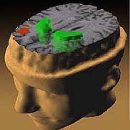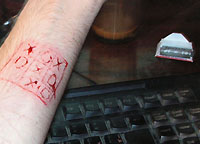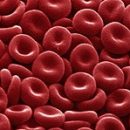Schizophrenia - Mystery, a veil of which people are trying to raise over many millennia. What is it? How to understand people suffering from this spiritual ailment, do they need to be afraid or awaited? How to treat them and behave, facing them face to face?..
Content
What a disease – schizophrenia? And Disease Lie?
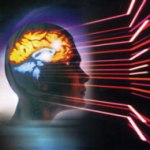
Schizophrenia – Mental disease characterized by impaired thinking, behavior, perception of the surrounding world, as well as emotional disorders. As a rule, schizophrenia is sick men, women – rarely.
If you put a question, whether schizophrenia is a disease or other way of perception of reality - on the other, alien to us, the answer will be affirmative: yes, is! Since the disease is some deviation from a statistically defined norm. But the disease – only from a clinical point of view!
In the social sense of a person suffering from this disease, to call patients, that is, defective, it would be incorrect. And even though this disease is chronic, schizophrenia forms are extremely diverse and often a person currently in the remission, that is, outside the attack (psychosis), can be quite capable, and even more professionally productive than its average «Normal individuals».
The main symptoms of schizophrenia
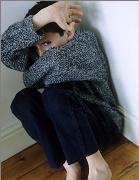 The main symptoms of schizophrenia include:
The main symptoms of schizophrenia include:
- reduction in the level of activity;
- closed;
- aggressiveness;
- Changeable (often negative) attitude to loved ones;
- Poverty of the content of thinking, its illogicality, cliffs of thoughts, unusual beliefs, the feeling of impact on thought;
- perception disorders;
- depletion, dull emotion;
- violation of attention and understanding;
- Inability to distinguish between the internal and external world;
- Possible nonsense and hallucinations.
What to do if schizophrenia is sick one of your friends or relatives? How to be? How to behave with such a person? Here are some recommendations:
- Try to seek as soon as possible for help from a specialist - a psychiatrist; The deadlines for the start of treatment play a crucial role;
- Strictly follow the doctor's prescriptions and control the constant reception of medicines;
- Pay attention to all changes in well-being. If possible, write down and report them to a consulting doctor;
- No drugs and alcoholic beverages sick schizophrenia! They exacerbate the symptoms of the disease;
- Try to facilitate the feeling of loneliness;
- Be frank in conversation;
- reinforce the patient a sense of reality;
- Do not strive to quickly change the social position of the patient, the place of his studies, the occupation, the situation in the family;
- Do not show excessive emotionality in relationships with patients;
- Do not show in relation to the patient aggression;
- Try to understand the feelings and thoughts of the patient, show sympathy, without causing the feeling of danger and without imposing their help;
- Do not laugh at what the patient says, do not humiliate and do not insult him;
- Do not argue with the sick and do not overheat it;
- Explain easier; say what you wanted to say is clear, calm and confident;
- Support and develop the social skills of the patient in its daily activities.
Is it possible to get rid of schizophrenia?
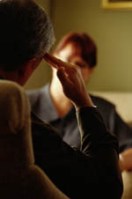 As for any other mental disorder, the treatment of schizophrenia requires an integrated approach. The trust in the attending physician, cooperation with it, as well as the conduct of active social work, taking into account the peculiarities of the patient's family, his social status.
As for any other mental disorder, the treatment of schizophrenia requires an integrated approach. The trust in the attending physician, cooperation with it, as well as the conduct of active social work, taking into account the peculiarities of the patient's family, his social status.
Unfortunately, it is impossible to get rid of schizophrenia. With competent treatment and timely implementation of all the prescriptions of the specialist, it is possible only to drown out its attacks and get rid of relapses.
There are types of treatment.
- Medical therapy. The experience of treating schizophrenia shows the importance of use for this purpose of modern drugs with respect to brain tissues by metabolic effect: Mildranat, Mexidol, Berlition, Cerebrolysin, Milgama.
- Biological therapy Schizophrenia. It is advisable to use modern methods of rehabilitation, including a variety of methods (psychoanalysis, cognitive and existential therapy, therapy creative self-expression, etc.) and form of psychotherapy (individual, group, family).
- Consulting psychiatra. The patient should know what kind of symptoms of mental disorder he has, what needs to be done to prevent the exacerbation of the disease, which should be food and how to behave with relatives. The passivity of the patient leads to the chronic course of the disease, contributes to the increase in negative symptoms.
- Therapy aimed at preventing disease recurrence. Recently, for this purpose, drugs with a prolonged effect are actively used: rispolept concrete, phluuanxol depot and less often - due to a minor influence on negative symptoms - Klopixol depot.


